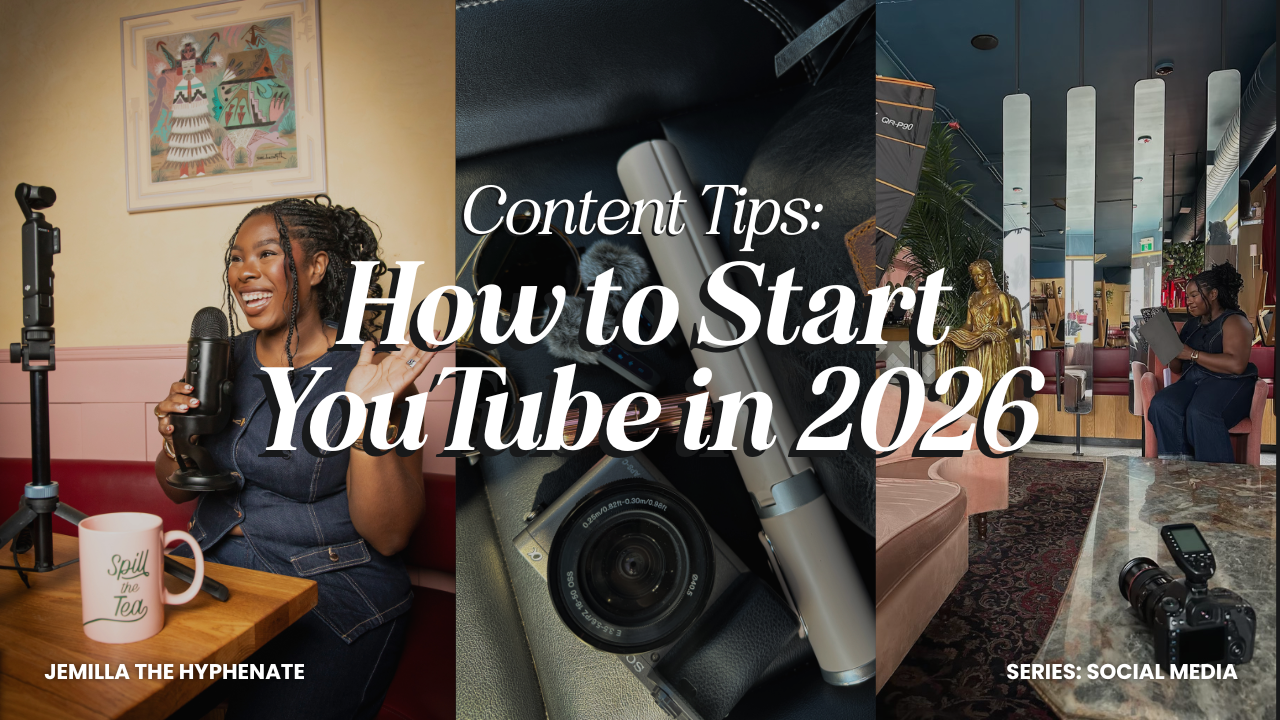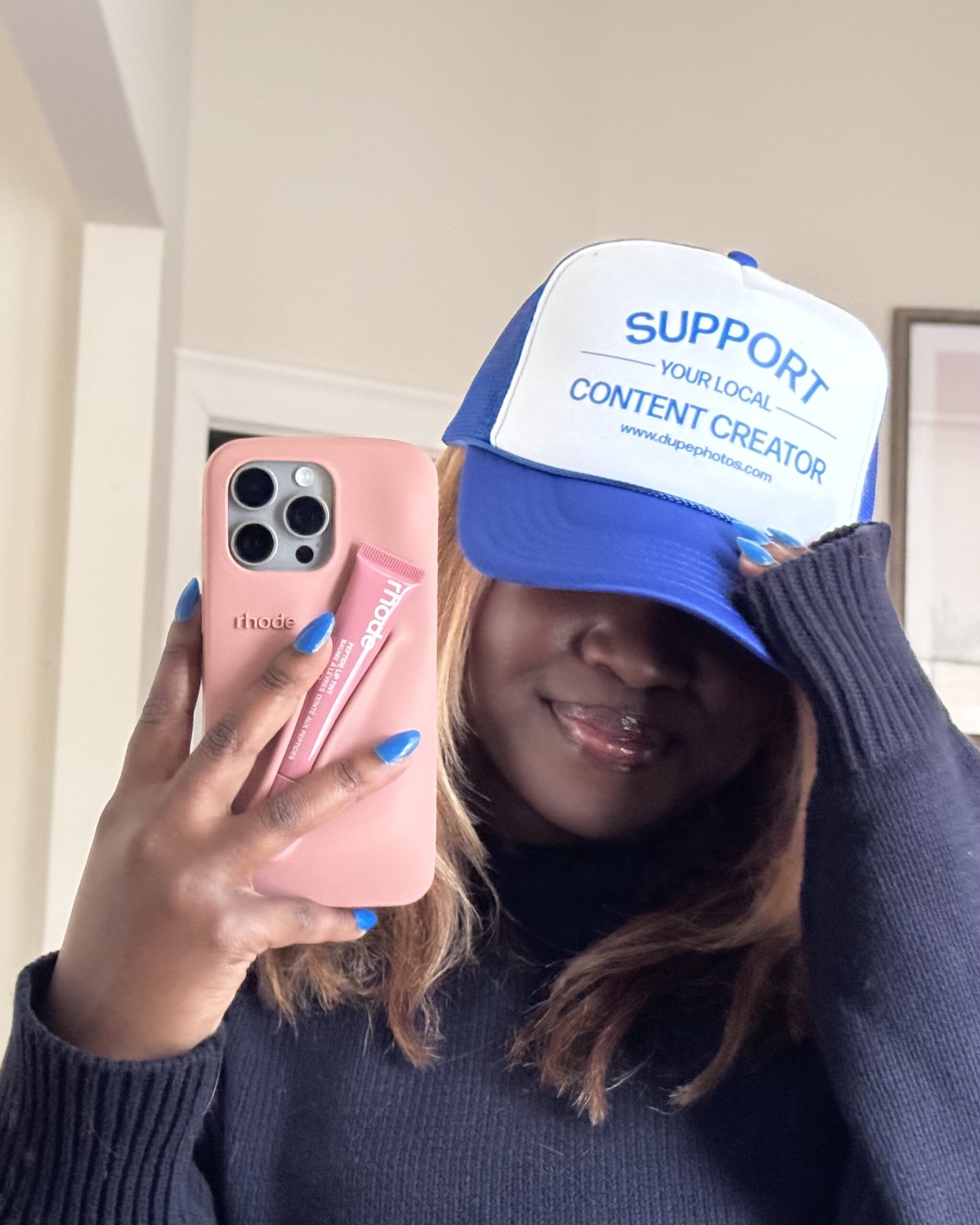HEY FRIEND!
I'm jemilla!
In the past 4 years, I’ve cut my teeth strategizing & writing award-worthy, revenue-increasing, results-snatching copy. And what really lights my fire is writing for woman-owned and BIPOC-led brands. I’m talkin’ the first day after a braiding appointment type of excited! Energizing them to go big with their bold ideas so that when launch time happens, the world thinks “OMG FINALLY, I’ve been waiting for something like this.” And giving them the tools to diversify the market.
about me
services
The Psychology Behind Website Copy That Converts
March 17, 2025
Whenever you go on a business’s website, they’re trying to get you to buy from them. And it’s not just writing website copy to fill the page — there’s intentional science and psychology behind those words that influence how people make decisions.
According to Contentsquare’s2021 Digital Experience Benchmark report, the average website visitor spends just 54 seconds on a page before deciding whether to stay or bounce. That means your website copy needs to work hard — and fast — to connect, convince, and convert.
Understanding the psychology behind conversion is essential if you want website copy that actually turns visitors into clients. Whether it’s leveraging social proof, creating a sense of urgency, or establishing deep cultural relevance, these psychological principles can transform your website from a digital brochure into a client-generating machine.
In this post, I’m breaking down the key psychological triggers that make website copy convert, with examples of how to implement them on your own site. Let’s dive in!
The Trust Factor
Authority Signals
People want to buy products or services from brands that know what they’re doing, are experts in their field and can prove that they are.
So showing your credentials and expertise is vital for conversions. That could be by showing how many years of experience you have in the industry, your certifications, notable clients you’ve worked with, etc.
But to prove that you’re good at what you do and a trusted expert worth paying for, it’s not enough to talk about your credentials and expertise. You need social proof to back you up — and strategically integrating it into your website copy can help you say the right thing at the right time.
For example, when writing the website copy for the services page of my therapy practice client’s website, we made a claim about the kind of care they deliver, the problems they serve, and the fact that they truly understand their clients.

Another great signal of your authority is press and recognition for your expertise, because it shows the industry and community trust you as an expert.
People will trust you more if they can see you’re an expert, and all these examples are indicators of that.
Transparency Elements
People hate a fake bitch, so you want to have honest communication. One way is by showing your pricing and making it clear — and if you think not showing your prices on your website and only making it available via email subscription will weed out the bad clients, I don’t agree! People like to weigh their options, and that doesn’t make them an unaligned lead. It just means they’re thorough and, if anything, they’re more serious about considering you as their final choice.
You’ll also want to clarify your unique process — whether that be for how you conduct your service, or complete a product delivery. People want to know what they can expect to get with their money, so being transparent about the ins and outs of working with you/buying from you is important.
Like how I clarified the process for one of my client’s signature services:

And make sure to be authentic — these are people, not just customers with wallets. So acknowledge what it’ll be like for them to part with their hard-earned money, even if you’re amazing and it’s a no-brainer to work with you. Keep it real, and they’ll respect that.
The Value Perception
Pain Points and Solutions
Website copy that sounds and feels more human always wins more than generic copy that doesn’t spark emotion. So you want to get really good at identifying your reader’s problems, and framing what you sell as the ideal solution.
Like how I tapped into the problems Canadians feel every day, segue to how Canadian health care isn’t set up to really help them, and setting the stage to introduce my client’s value proposition.

Emphasizing the transformation your product/service can create for these people is a great way of doing that — and you can show that with testimonials from past customers, case studies, success stories and data.
Like what I did here for my brand & website designer client:

Risk-Reward Balance
People will always try and find a reason to not pay for something. Loss aversion — the fear of losing something we have, like money — is STRONG. So you’ll want to handle objections strategically and delicately in your website copy.
If you can, guarantee the results of your offer OR offer a money-back guarantee, it’ll assure people that you’re about that action. And you can use risk reversal techniques to showcase the return your reader will get on their investment.
Like having a beefy FAQs section, showing the value of the offer compared to the price you’re charging, comparing your offer to industry standards or your competitors and showing how much more bang your reader will get for their buck.
Like what I did here to promote my client’s nutrition services as a valuable investment for Canadians with gut issues and problems losing weight.



The Connection Creator
Brand Voice Psychology
All great website copy is compelling, conversational, and culturally-relevant. And that all boils down to having a personality that your readers vibe with, creating an emotional connection that bonds you to them, speaking to relevant parts of their life and identity, and aligning with their values.
Doing brand voice development work is crucial to check all these boxes, as is continual testing and refining. I didn’t land on my brand voice until I rebranded 2 years into starting Storytella Studios©, but that rebrand has helped me achieve business wins because my brand voice and personality is more authentic to me and my ideal clients.
I did the same for my brand & website designer client! Staying true to her faith and personal values while also focusing on her clients and what they’re going through.

Storytelling Impact
Storytelling is a powerful psychological technique to weave into your website copy because stories are 22x more memorable than facts alone (Stanford University Research), and brand stories increase the perceived value of a product by 20% (Psychology Today).
So you’ll want to build a story that taps into your reader’s shared experiences, affirms their identity, and shows the transformation they can enjoy when working with you.
Like I did for my client here:

The Action Motivator
Scarcity and Urgency
The driving force of any website copy that sparks action is letting people know what little chance they have to buy your product/service, and entice them to act now or else they’ll miss out on some great opportunities.
You can do this by employing some limited availability psychology, throwing down some deadlines, and using FOMO triggers to get your readers to click the button right away.
I used all these elements to entice readers to book my client’s resume optimization service:

Simplify Decisions
You want to make it easy for your readers to book or buy, so in your website copy you want to show them their options — and if you want to go the extra mile, you can have a quiz that helps them discover the right option for them.
You’ll also want to avoid overwhelming them with too many options and too much stuff to consider. And when they do decide to add to cart or fill out your contact form, you want to give them clear next steps to eliminate friction.
Like we did for my brand & website designer’s website copy, to help her readers choose the right website builder for them before going to the next step — booking her services:

Next Steps
Look at your current website copy and see if there’s any way you can improve your social proof — both the kinds you use, and where you put it. You can grab my free Social Proof Calculator to help you with this!
Assess whether your authority elements are relevant and if you have enough, if you’re being transparent enough about your pricing and processes, and whether you’re addressing the risks of buying from you.
Ask yourself: “Am I really hitting home on what my reader is going through?”, “Am I telling enough of a story, and showing the transformation effect of my offers?”, and “Am I sparking urgency and scarcity in the right place, at the right time, and should I even do so at all?”
When you work with a website copywriter, they’ll be asking all these questions as they write or audit your website copy. So if you don’t have time to do it yourself, or you want an expert to do the job, I’d love to help you out with that!






